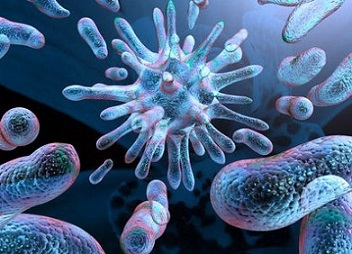COVID-19 News: Turkish Study Sheds Light on Microbial Coinfections in COVID-19 Patients, Urging Vigilance Against Antimicrobial Resistance
Thailand Medical News Team Aug 19, 2023 1 year, 8 months, 5 days, 23 hours, 14 minutes ago
COVID-19 News: In a new research endeavor, scientists at Istanbul University's Istanbul Faculty of Medicine have delved into the intricate realm of microbial coinfections in patients battling the SARS-CoV-2 virus. The study, spanning from November 2020 to December 2021, undertook a meticulous retrospective analysis of over 22,000 blood cultures, unveiling a nuanced portrait of the interplay between viral and bacterial pathogens. As the world grappled with the COVID-19 pandemic, the team at Istanbul University embarked on a mission to decipher the complex puzzle of bacteremia and fungemia, intricate conditions often accompanying severe viral respiratory infections. This phenomenon of bacteremia and fungemia in COVID-19 patients have been reported in various past case studies, research publications and
COVID-19 News reports.
 Pic Credit: Alexfiodorov
Bacteremia and Fungemia: A Menacing Duo
Pic Credit: Alexfiodorov
Bacteremia and Fungemia: A Menacing Duo
Bacteremia and fungemia, the presence of bacteria and fungi in the bloodstream, pose formidable threats to patients' health, causing significant morbidity and mortality. The study team recognized that these infections could act as co-conspirators with the SARS-CoV-2 virus, resulting in severe outcomes.
Acknowledging the dearth of comprehensive data on the subject, the study aimed to bridge this knowledge gap by examining blood cultures from patients both positive and negative for SARS-CoV-2.
Unveiling the Microbial Landscape
With unwavering determination, the study team meticulously examined a staggering total of 22,944 blood cultures, employing state-of-the-art methodologies for analysis. The BD Bactec automated system, conventional techniques, VITEK-2, and MALDI-TOF MS were employed for identification, while antimicrobial susceptibility testing followed EUCAST/CLSI recommendations. The researchers concurrently conducted SARS-CoV-2 tests using RT-PCR, shedding light on the complex interplay between viral and bacterial agents.
Key Findings Illuminate the Path Forward
The results of this intricate study unearthed compelling insights into the microbial battleground within patients' bloodstream.
Notably, the prevalence of microbial coinfections among SARS-CoV-2-positive patients was unveiled, with 18.6% testing positive for the virus.
Among the intriguing discoveries was the prominence of methicillin-resistant coagulase-negative staphylococci (MR-CoNS) in SARS-CoV-2-positive patients, marking a significant association (p = 0.028).
Additionally, the emergence of Acinetobacter baumannii infections demonstrated a heightened frequency among COVID-19 patients, underscoring the multifaceted nature of the battle within the body (p = 0.001).
The Antimicrobial Resistance Conundrum
The study's findings ignited a clarion call for vigilance against the looming th
reat of antimicrobial resistance. Carbapenem-resistant strains, including the notorious carbapenem-resistant Klebsiella pneumoniae, exhibited a worrisome prevalence among SARS-CoV-2-positive patients.
This harrowing trend mirrors global concerns regarding the rise of antimicrobial resistance in the wake of the COVID-19 pandemic. As healthcare systems grapple with the formidable challenge of managing viral infections, the study implores a simultaneous focus on combating bacterial and fungal adversaries.
Implications for Future Healthcare Strategies
In the midst of a pandemic that shook the foundations of healthcare systems worldwide, this Turkish study sheds light on a critical yet often overshadowed aspect of patient care. The research underscores the necessity of adopting a holistic approach, encompassing both viral and bacterial threats. As hospitals navigate the complexities of patient management, informed by the study's insights, healthcare providers are equipped with a potent arsenal to combat microbial coinfections and mitigate the proliferation of antimicrobial resistance.
Charting a New Path Forward
As the scientific community embraces these findings, the implications are far-reaching. The study beckons for a paradigm shift in patient care, urging healthcare professionals to scrutinize microbial coinfections with the same vigor as viral adversaries. Moreover, the call to action against antimicrobial resistance reverberates globally, inspiring healthcare systems to unite against the impending crisis.
In a world gripped by the specter of pandemic disease, this Turkish study emerges as a beacon of hope and knowledge. It is a clarion call for collaboration, urging researchers, healthcare providers, and policymakers to navigate the uncharted waters of microbial interactions and safeguard humanity against the dual menace of viral and bacterial adversaries. The study's insights serve as an invaluable guide, illuminating the path to a future where microbial coinfections are thwarted, and the looming shadow of antimicrobial resistance is vanquished.
The study findings were published on a preprint server and are currently being peer reviewed.
https://www.preprints.org/manuscript/202308.1272/v1
For the latest
COVID-19 News, keep on logging to Thailand Medical News.
